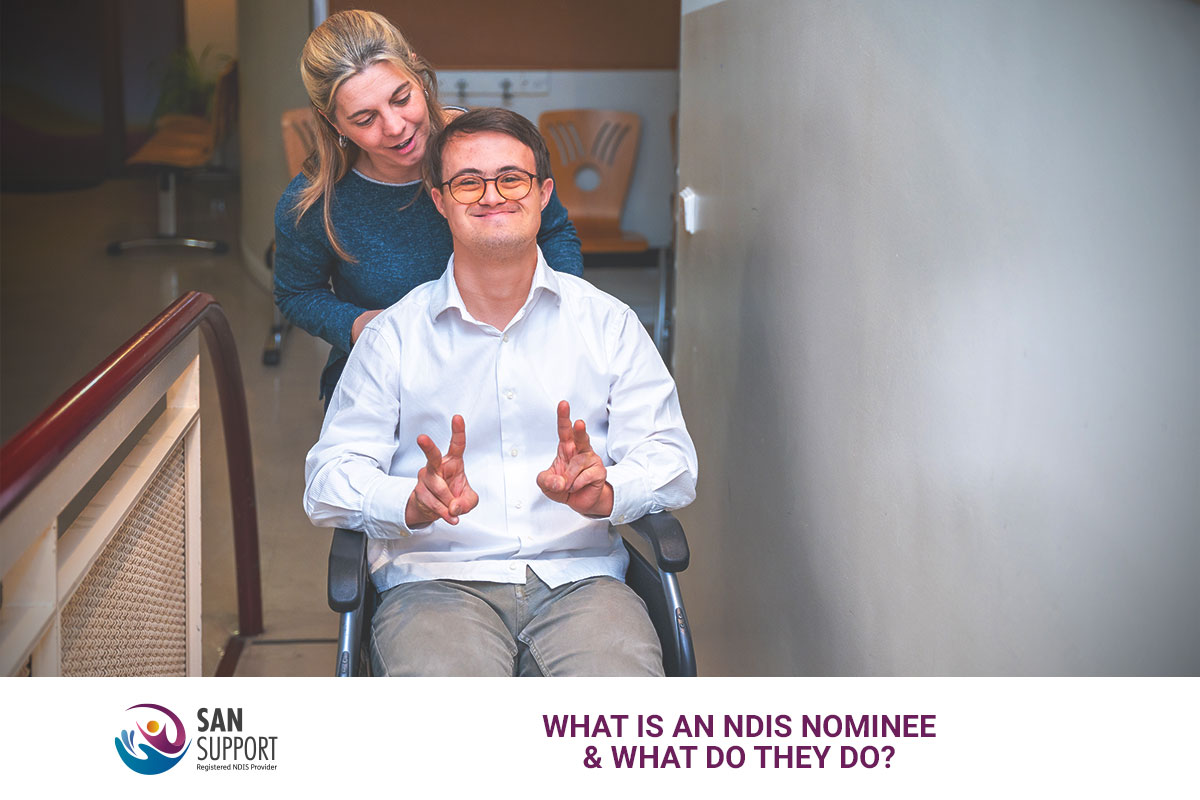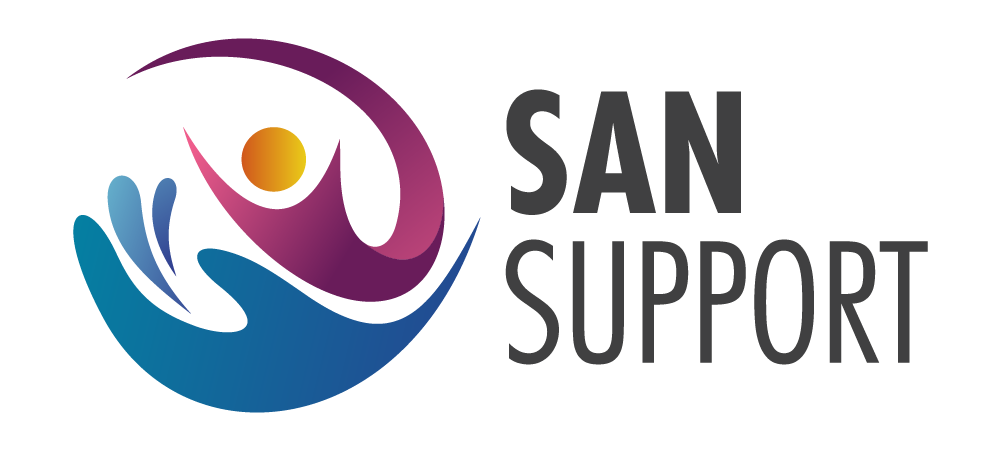
Turning 18 is a major milestone. It marks adulthood, independence and greater control over life decisions. However, for many people living with disability, managing these responsibilities and understanding the role of an NDIS nominee can be overwhelming.
The National Disability Insurance Scheme (NDIS) gives participants the right to make their own choices about supports, services and funding. Yet not everyone can manage every detail. That’s where an NDIS nominee plays an important role.
At SAN Support, we help participants and families navigate the NDIS. In this article, you’ll learn everything you need to know about nominees, including the types of nominees, what they do and how to appoint one.
What is an NDIS Nominee?
An NDIS nominee is a person or organisation that represents a participant in their dealings with the NDIA (National Disability Insurance Agency). They make decisions or complete tasks on behalf of the participant, but always act in line with the participant’s wishes.
Nominees do not replace the participant’s independence. Instead, they make it easier to communicate with the NDIA, manage paperwork and handle complex funding decisions.
For participants under 18, parents or guardians usually act as child representatives. Once a participant turns 18, they can either continue managing their own plan or appoint an NDIS nominee.
Types of NDIS Nominees
There are two main types of nominees in the NDIS and each plays a different role.
Plan Nominee
A plan nominee manages the bigger responsibilities of an NDIS plan. They can:
- Prepare, review or change the NDIS plan
- Decide how NDIS funding is spent
- Approve services and providers
- Oversee budgets to ensure funds last
Example: If a participant feels stressed about budgeting their therapy and daily supports, the plan nominee can step in and manage this while keeping the participant’s goals at the centre.
Plan nominees must always respect the participant’s choices, act in their best interests and promote their wellbeing.
Correspondence Nominee
A correspondence nominee has a more limited role. They:
- Receive NDIA letters, emails and notices
- Communicate with the NDIA on behalf of the participant
- Pass on information clearly
Unlike plan nominees, correspondence nominees cannot make funding decisions or change the plan. Their role is ideal for participants who can manage their supports but prefer not to handle communication or paperwork.
Responsibilities of an NDIS Nominee
When someone becomes a nominee, they take on specific responsibilities. They must:
- Respect the participant’s wishes and goals
- Include the participant in decisions wherever possible
- Act honestly and transparently
- Avoid conflicts of interest when selecting providers
This ensures that nominees support participants without taking away their independence.
Who Can Be an NDIS Nominee?
Participants usually choose nominees from people they know and trust. This could be:
- Parents or guardians
- Close family members
- Friends
- Trusted support workers
When choosing a nominee, participants should ask:
- Will this person respect my choices?
- Will they support me to build independence?
- Can they handle responsibilities reliably?
Participants can also nominate an organisation, such as a disability service provider. In that case, the NDIA requires the name of a specific individual within the organisation who will act on the participant’s behalf.
How to Appoint an NDIS Nominee
Appointing a nominee is simple. Participants can:
- Call the NDIA toll-free number
- Email enquiries@ndis.gov.au
- Speak with their Local Area Coordinator (LAC) or NDIA planner
To complete the process, participants will need their nominee’s name and contact details.
It is also possible to appoint more than one nominee. For example, one person might act as a correspondence nominee, while another manages funding as a plan nominee.
How to Change or Cancel an NDIS Nominee
Participants remain in control and can change or cancel nominees at any time. They can:
- Request the NDIA to remove a nominee
- Appoint a new nominee
- Switch from one type of nominee to another
This flexibility ensures that participants always feel supported by the right person.
Benefits of Having an NDIS Nominee
Appointing an NDIS nominee offers many advantages, including:
- Less stress when managing NDIS paperwork and communication
- Clearer and faster communication with the NDIA
- Reliable support when making important plan or funding decisions
- Greater confidence for families and carers
- More time for participants to focus on achieving their goals
For many participants, having a nominee makes the NDIS journey smoother and more empowering.
Why Understanding NDIS Nominees Matters
Nominees exist to support, not control. They play a key role in helping participants communicate with the NDIA, manage their funding and access the supports they need.
At SAN Support, we encourage participants to see nominees as part of their wider support team, alongside family members, support workers and providers. With the right nominee, participants can feel confident that their needs remain the priority.
Key Takeaway
An NDIS nominee is a trusted representative who helps participants manage their NDIS responsibilities. From handling communication with the NDIA to making funding decisions, nominees reduce stress and ensure participants stay empowered and in control of their journey.
